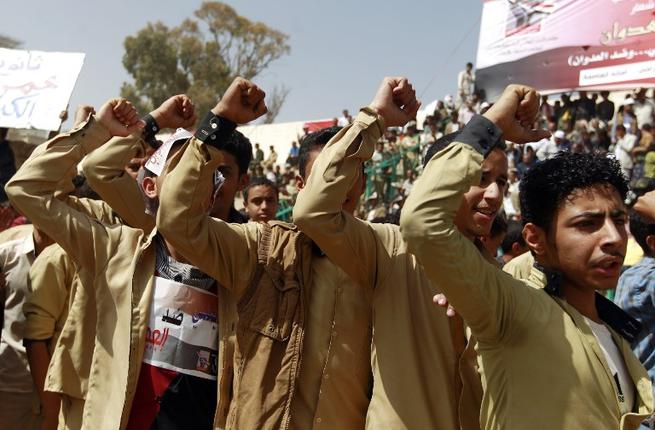Yemeni officials on Sunday said that Shiite Houthi rebels and the internationally recognized government have agreed to begin a ceasefire for a week or two before their next round of negotiations, The Associated Press (AP) reported.
The officials participated in talks Sunday in Sanaa, the capital, between the rebels and UN envoy Ismail Ould Cheikh Ahmed. They say talks are expected to restart next month.
The officials said the Houthis have agreed to implement a UN Security Council resolution which requires them to hand over weapons and withdraw from territory, including Sanaa. All officials spoke on condition of anonymity because they were not authorized to brief reporters.
The fighting between the Yemeni government has been ongoing for over a year, and began after the Iran-backed rebels drove out Yemen’s Saudi-supported President Abd-Rabbu Mansour Hadi. Saudi Arabia became involved in the fighting and organized an Arab coalition to attack the Houthi rebels.
Last week Saudi Arabia said it would be withdrawing its forces from Yemen soon. In June, Yemen’s exiled government and the Houthi rebels failed to agree on a temporary ceasefire during UN-brokered talks. A humanitarian truce was declared a month later, but fighting continued even during that truce. In each previous attempt to implement a ceasefire in Yemen, the sides were accusing each other of immediately violating the terms.
© Arutz Sheva, All Rights Reserved.

